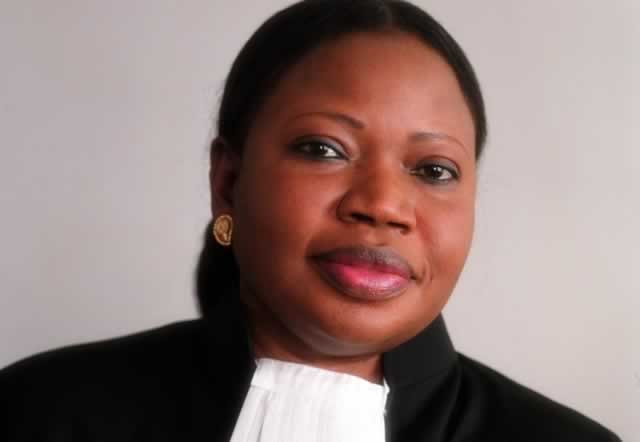ICC and empty justice

Reason Wafawarova On Thursday
South Africa would not possibly repeat another blunder after the country unwittingly signed Gaddafi’s death warrant at the hands of Western countries. The flak would be unbearable
On October 25 in 2013, former US Assistant Secretary of State for African Affairs, Jendayi Frazer, condemned former ICC prosecutor Moreno Ocampo for carrying out a shoddy investigation in relation to cases for defendants, Kenyan President Uhuru Kenyatta, Deputy President William Ruto, as well as radio journalist, Joshua Sang — adding that the cases were as weak as to be dismissed, otherwise pursuing them would end up in “empty justice.”
We know that the cases for the three Kenyans have literally collapsed because of lack of evidence, but last week’s developments in South Africa where a Pretoria Court gave an order barring President Omar al Bashir of Sudan from leaving the country pending possible arrest in respect of an ICC-issued warrant of arrest was yet another sign of how international law continues to be applied selectively against weaker nations, especially those in Africa.
Sadly, in a significant number of cases players within Africa itself have fronted the passion and zeal to invoke the ICC agenda, like the applicants for this Pretoria court order. While the United States and Israel continue to enjoy their self-given impunity from the jurisdiction of the ICC, it is telling that other avenues of justice recourse have been used against offenders from these two countries, like when Belgium declared extraterritorial jurisdiction against Donald Rumsfeld and Ariel Sharon, or when a British Court issued a warrant of arrest for Israel’s Tzipi Livin in 2009.
Livin had to cancel her trip to the UK at the time. In May 2014, the British government had to grant Livin temporary diplomatic immunity after London lawyers Hickman and Rose had successfully obtained another warrant of arrest for her.
The lawyers had successfully sought the arrest warrant on behalf of a relative of a Palestinian killed in the bombing of a police compound in December 2008, when Livin was Israel’s Justice Minister. She has been fingered by many human rights organisations as having played a major role in that massacre.
The actions of the British government angered human rights activists, with the director of the Palestinian Centre for Human Rights (PCHR) saying he was “disappointed” that Britain was promoting “the rule of the jungle” in place of the “rule of law.” He went on to mock the UK’s policy of “ending impunity for international crimes” as a joke.
The then shadow Minister for Justice in the UK, Andy Slaughter, charged that it was dangerous that Britain was allowing diplomacy to override the role of the courts. Tzipi Livini was not the first official to benefit from Britain’s special treatment of Israel’s crime suspects. Earlier Benny Grantz and Doron Almog had also been granted special diplomatic impunity, sorry immunity in 2013.
In September 2005, Almog escaped possible arrest by refusing to disembark a plane at Heathrow Airport, after a tip off that he faced arrest if he set foot on the airport’s tarmac.
David Cameron is aware that these Israeli officials face serious allegations in that they are accused of masterminding the 2008-9 onslaught on Palestinians, killing an estimated 1400 people, according to figures from independent sources. Official statistics from the Israeli government put the death toll at 1 166, not exactly too different from the truth.
But the British Prime Minister had this to say to the Israelis at the time:
“Because of the law on universal jurisdiction — senior Israelis could not safely come to my country without fear of ideologically motivated court cases and legal stunts; when I became Prime Minister, I legislated to change it. My country is open to you and you are welcome to visit any time.” So much for someone who leads a country that vows to “end impunity for international crimes.”
Now it is time for replica politics in Africa, and the white dominated South African legal system issued an order to have a visiting African president arrested at an AU summit, of all places, knowing fully well that the South African government had granted diplomatic immunity for all visiting delegates.
The BBC’s Andrew Harding says that by allowing the Sudanese president the right to attend the AU summit South Africa “has stepped straight, and deliberately, into controversy, courting Western fury by rolling out the welcome carpet for President Bashir.” He adds, “South Africa’s actions will be bitterly condemned internationally,” should Zuma’s government allow Bashir to leave the country. Of course “internationally means” in the West, as usual.
Of course the South African government allowed the Sudanese president to fly out of the country, existing through a military airstrip. That kind of action was quite predictable from more than one angle. South Africa would not possibly repeat another blunder after the country unwittingly signed Gaddafi’s death warrant at the hands of Western countries. The flak would be unbearable.
In any event, the South African government granted Bashir immunity prior to his arrival in line “with the standard international protocol for any such summits,” and there is no reason to believe this is cause for “Western fury,” if for example the civilised practice of granting Israeli war crimes suspects diplomatic immunity in Britain has to be emulated.
If Cameron can brag to his friends in Israel that he personally legislated to have them enjoy impunity for their alleged past crimes, surely any other government can also willy-nilly choose to grant immunity to whoever it so wishes, unless of course there is a special place in law for Britain and her allies.
Julius Nyerere once declared, “No nation has the right to make decisions for another nation; no people for another people.”
Yet so many years after the revolutionary Tanzanian’s death we still see powerful countries lording it over the weaker nations in Africa, and lately the ICC has been one of the major tools used to control the direction of African politics.
Criticism against the ICC has never been over the merits or demerits of the cases for which Africans have been indicted or prosecuted, but over the jurisdiction of Western courts in African affairs, and also the selective approach the ICC has employed in discharging its duties since 2002.
At its formation, the ICC fooled many with its glorious impression that it was going to be benevolent, acting for the greater good of the entire world, bringing to book all the brutes that often cause the gruesome suffering of humanity.
Thirteen years down the line, almost everyone is convinced that the ICC harbours a deep-seated African problem. Some have even suggested it must be renamed the International Criminal Court for Africans (ICCA).
This is because it now appears like only Africans commit war crimes, crimes against humanity, or genocides; and only Africans require the higher morals of Western created institutions, otherwise the wayward post-colonial African state will blatantly ruin humanity.
To many African analysts the ICC is simply an extension of the dyadic parent-child relationship between Africa and Western NGOs, or aid agencies, think tanks, the World Bank, or the IMF. The patronising pattern of how most of these institutions have related to African communities over the years is quite telling, and it has prompted African writers like Dambisa Moyo to write books like “Dead Aid,” a prolific and incisive layout of the hazardous effect of dependency on the people of Africa.
As it stands, the ICC comprises of 121 states parties, or countries that have signed and ratified the Rome Statute. It has 32 signatory countries, and there are 41 non-signatory UN member states, like the United States, Israel, Zimbabwe, Libya, and others.
It is interesting that a non-signatory country like the United States used the ICC against another non-signatory country when it suited the American government best, in the pursuit of Muammar Gaddafi. Of course if roles were reversed, and it was Libya pursuing George W. Bush using the ICC, the international court would not have any passion for it, and the United States would count such a move as the least of its worries.
Journalist Kimberly Margaret had this to say about the ICC: “The big fish — the United States and the NATO nations — are free to violate the international law, to violate human rights with complete impunity. Since the ICC was founded, the United States invaded Iraq . . . Israel attacked Gaza, targeted a civilian population . . . so it seems the rules apply only to weak nations.”
She can easily be justified when one looks at the break down of the indicted, the suspects, and the prosecuted so far. As at 2014 there were 32 of these people, all from Africa, namely six from Kenya, five from Uganda, three from Congo, six from Sudan, two from the Ivory Coast, three from Libya and two from Rwanda. The other suspect from the Ivory Cast is the former First Lady of the country, Simone Gbagbo.
It is easy as to have a simple dob in from a hater for some people in the West to take ICC bound charges against an African at face value, and scores of innocent Africans have been placed on investigation lists over absolutely baseless allegations, this writer included.
The ICC prosecutor Fatou Bensouda has almost comically claimed the ICC’s focus on Africa “is a sign that the continent is dedicated to international justice.”
This would be funny if it was not tragic. It is hard to believe that an African lady lawyer would on a fine day decide to sanitise Moreno Ocampo’s terrible reputation as a racist who introduced the disproportionate ICC focus on Africa.
Ocampo is Bensouda’s predecessor at the ICC, and he is the one Jendayi Frazer was blaming, as quoted at the beginning of this article. Bensouda cannot possibly succeed in portraying the ICC as some angelic institution with a sincere superhero mission to cure the world of undue aggression and the brutalities of warmongers. If she were to succeed she would have to explain why the rape victims of the US armed forces do not deserve the same justice as the victims of post-election political violence in Kenya.
There must be a reason why the hundreds of Afghanis killed by US drones do not deserve the same justice as the war victims of Darfur in Sudan, or why the thousands of Iraqis killed during and after the 2003 invasion have not attracted as much sympathy as did Benghazi rebels before they were even attacked by Gaddafi; just claiming to have been threatened.
The ICC stands as a discredited institution that is seriously damaging the good standing of the principle of international law, and it is quite a shame that South Africa has a justice system that sanitises such a travesty. Africa we are one and together we will overcome. It is homeland or death!
REASON WAFAWAROVA is a political writer based in SYDNEY, Australia









Comments